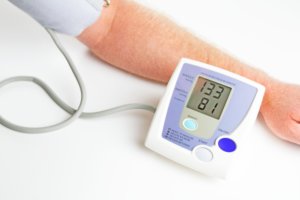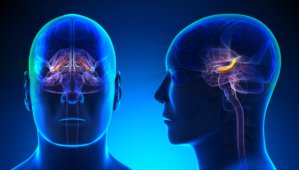afterLoad (456.3KB) (439μs)
afterInitialise (1.27MB) (50.92ms)
afterRoute (857.48KB) (22.8ms)
beforeRenderComponent com_content (35.92KB) (277μs)
Before Access::preloadComponents (all components) (69.88KB) (7.55ms)
After Access::preloadComponents (all components) (98.07KB) (547μs)
Before Access::preloadPermissions (com_content) (1.6KB) (13μs)
After Access::preloadPermissions (com_content) (3.29MB) (21.05ms)
Before Access::getAssetRules (id:62 name:com_content.category.20) (130.65KB) (104μs)
After Access::getAssetRules (id:62 name:com_content.category.20) (7.38KB) (54μs)
Before Access::getAssetRules (id:8 name:com_content) (51.77KB) (36.73ms)
After Access::getAssetRules (id:8 name:com_content) (6.17KB) (24μs)
afterRenderComponent com_content (1.38MB) (242ms)
afterDispatch (32.63KB) (10.62ms)
beforeRenderRawModule mod_articles_category (READ MORE...) (350.71KB) (16.65ms)
afterRenderRawModule mod_articles_category (READ MORE...) (84.63KB) (92.05ms)
beforeRenderRawModule mod_tags_popular (Search) (4.81KB) (25μs)
afterRenderRawModule mod_tags_popular (Search) (6.59KB) (42.2ms)
beforeRenderRawModule mod_custom (BOOST YOUR IMMUNE DEFENSE) (960B) (25μs)
afterRenderRawModule mod_custom (BOOST YOUR IMMUNE DEFENSE) (4.2KB) (213μs)
beforeRenderRawModule mod_custom (Are you taking supplements) (736B) (13μs)
afterRenderRawModule mod_custom (Are you taking supplements) (1.03KB) (25μs)
beforeRenderRawModule mod_articles_category (Get additionel and more detailed knowledge about) (8.41KB) (19μs)
afterRenderRawModule mod_articles_category (Get additionel and more detailed knowledge about) (44.42KB) (2.47ms)
beforeRenderRawModule mod_custom (Antiaging) (6.97KB) (51μs)
afterRenderRawModule mod_custom (Antiaging) (1KB) (38μs)
beforeRenderRawModule mod_custom (Exercise) (720B) (11μs)
afterRenderRawModule mod_custom (Exercise) (1.02KB) (22μs)
beforeRenderRawModule mod_custom (Check this before you buy a Q10 product) (752B) (8μs)
afterRenderRawModule mod_custom (Check this before you buy a Q10 product) (944B) (21μs)
beforeRenderModule mod_articles_category (READ MORE...) (267.89KB) (1.98ms)
afterRenderModule mod_articles_category (READ MORE...) (1.25KB) (61μs)
beforeRenderModule mod_tags_popular (Search) (5.17KB) (14μs)
afterRenderModule mod_tags_popular (Search) (2.52KB) (26μs)
beforeRenderModule mod_custom (BOOST YOUR IMMUNE DEFENSE) (1.31KB) (11μs)
afterRenderModule mod_custom (BOOST YOUR IMMUNE DEFENSE) (1.28KB) (20μs)
beforeRenderModule mod_custom (Are you taking supplements) (352B) (9μs)
afterRenderModule mod_custom (Are you taking supplements) (1.28KB) (19μs)
beforeRenderModule mod_articles_category (Get additionel and more detailed knowledge about) (8.03KB) (15μs)
afterRenderModule mod_articles_category (Get additionel and more detailed knowledge about) (1.31KB) (19μs)
beforeRenderModule mod_custom (Antiaging) (7.33KB) (9μs)
afterRenderModule mod_custom (Antiaging) (1.27KB) (33μs)
beforeRenderModule mod_custom (Exercise) (336B) (10μs)
afterRenderModule mod_custom (Exercise) (1.25KB) (20μs)
beforeRenderModule mod_custom (Check this before you buy a Q10 product) (352B) (8μs)
afterRenderModule mod_custom (Check this before you buy a Q10 product) (1.28KB) (19μs)
beforeRenderRawModule mod_menu (Main menu-US) (28.53KB) (464μs)
afterRenderRawModule mod_menu (Main menu-US) (157.05KB) (1.28ms)
beforeRenderModule mod_menu (Main menu-US) (720B) (4μs)
afterRenderModule mod_menu (Main menu-US) (4.36KB) (59μs)
beforeRenderRawModule mod_languages (Sprogskift) (3.44KB) (15μs)
afterRenderRawModule mod_languages (Sprogskift) (29.88KB) (1.42ms)
beforeRenderModule mod_languages (Sprogskift) (720B) (5μs)
afterRenderModule mod_languages (Sprogskift) (5.31KB) (20μs)
beforeRenderRawModule mod_finder () (6.34KB) (10μs)
afterRenderRawModule mod_finder () (154.54KB) (1.89ms)
beforeRenderModule mod_finder () (704B) (4μs)
afterRenderModule mod_finder () (3.29KB) (31μs)
beforeRenderRawModule mod_custom () (6.62KB) (128μs)
afterRenderRawModule mod_custom () (90.52KB) (744μs)
beforeRenderModule mod_custom () (704B) (6μs)
afterRenderModule mod_custom () (1.23KB) (47μs)
beforeRenderRawModule mod_menu (Main menu-US) (5.07KB) (88μs)
afterRenderRawModule mod_menu (Main menu-US) (5.8KB) (628μs)
beforeRenderModule mod_menu (Main menu-US) (720B) (4μs)
afterRenderModule mod_menu (Main menu-US) (3.75KB) (43μs)
beforeRenderRawModule mod_languages (Sprogskift Mobil) (912B) (15μs)
afterRenderRawModule mod_languages (Sprogskift Mobil) (3.89KB) (592μs)
beforeRenderModule mod_languages (Sprogskift Mobil) (720B) (3μs)
afterRenderModule mod_languages (Sprogskift Mobil) (1.27KB) (28μs)
beforeRenderRawModule mod_finder () (2.3KB) (9μs)
afterRenderRawModule mod_finder () (6.29KB) (488μs)
beforeRenderModule mod_finder () (704B) (5μs)
afterRenderModule mod_finder () (1.23KB) (40μs)
beforeRenderRawModule mod_custom () (8.66KB) (158μs)
afterRenderRawModule mod_custom () (904B) (119μs)
beforeRenderModule mod_custom () (704B) (3μs)
afterRenderModule mod_custom () (2.43KB) (21μs)
beforeRenderRawModule mod_custom () (688B) (71μs)
afterRenderRawModule mod_custom () (896B) (89μs)
beforeRenderModule mod_custom () (704B) (2μs)
afterRenderModule mod_custom () (2.71KB) (37μs)
afterRender (184.79KB) (2.56ms)
| 1 x afterRenderComponent com_content (1.38MB) (43.11%) | 241.61ms |
| 1 x afterRenderRawModule mod_articles_category (READ MORE...) (84.63KB) (16.43%) | 92.05ms |
| 1 x afterInitialise (1.27MB) (9.09%) | 50.92ms |
| 1 x afterRenderRawModule mod_tags_popular (Search) (6.59KB) (7.53%) | 42.20ms |
| 1 x Before Access::getAssetRules (id:8 name:com_content) (51.77KB) (6.55%) | 36.73ms |
| 1 x afterRoute (857.48KB) (4.07%) | 22.80ms |
| 1 x After Access::preloadPermissions (com_content) (3.29MB) (3.76%) | 21.05ms |
| 1 x beforeRenderRawModule mod_articles_category (READ MORE...) (350.71KB) (2.97%) | 16.65ms |
| 1 x afterDispatch (32.63KB) (1.9%) | 10.62ms |
| 1 x Before Access::preloadComponents (all components) (69.88KB) (1.35%) | 7.55ms |
| 1 x afterRender (184.79KB) (0.46%) | 2.56ms |
| 1 x afterRenderRawModule mod_articles_category (Get additionel and more detailed knowledge about) (44.42KB) (0.44%) | 2.47ms |
| 1 x beforeRenderModule mod_articles_category (READ MORE...) (267.89KB) (0.35%) | 1.98ms |
| 1 x afterRenderRawModule mod_finder () (154.54KB) (0.34%) | 1.89ms |
| 1 x afterRenderRawModule mod_languages (Sprogskift) (29.88KB) (0.25%) | 1.42ms |
| 1 x afterRenderRawModule mod_menu (Main menu-US) (157.05KB) (0.23%) | 1.28ms |
| 1 x afterRenderRawModule mod_custom () (90.52KB) (0.13%) | 744μs |
| 1 x afterRenderRawModule mod_menu (Main menu-US) (5.8KB) (0.11%) | 628μs |
| 1 x afterRenderRawModule mod_languages (Sprogskift Mobil) (3.89KB) (0.11%) | 592μs |
| 1 x After Access::preloadComponents (all components) (98.07KB) (0.1%) | 547μs |
| 1 x afterRenderRawModule mod_finder () (6.29KB) (0.09%) | 488μs |
| 1 x beforeRenderRawModule mod_menu (Main menu-US) (28.53KB) (0.08%) | 464μs |
| 1 x afterLoad (456.3KB) (0.08%) | 439μs |
| 1 x beforeRenderComponent com_content (35.92KB) (0.05%) | 277μs |
| 1 x afterRenderRawModule mod_custom (BOOST YOUR IMMUNE DEFENSE) (4.2KB) (0.04%) | 213μs |
| 1 x beforeRenderRawModule mod_custom () (8.66KB) (0.03%) | 158μs |
| 1 x beforeRenderRawModule mod_custom () (6.62KB) (0.02%) | 128μs |
| 1 x afterRenderRawModule mod_custom () (904B) (0.02%) | 119μs |
| 1 x Before Access::getAssetRules (id:62 name:com_content.category.20) (130.65KB) (0.02%) | 104μs |
| 1 x afterRenderRawModule mod_custom () (896B) (0.02%) | 89μs |
| 1 x beforeRenderRawModule mod_menu (Main menu-US) (5.07KB) (0.02%) | 88μs |
| 1 x beforeRenderRawModule mod_custom () (688B) (0.01%) | 71μs |
| 1 x afterRenderModule mod_articles_category (READ MORE...) (1.25KB) (0.01%) | 61μs |
| 1 x afterRenderModule mod_menu (Main menu-US) (4.36KB) (0.01%) | 59μs |
| 1 x After Access::getAssetRules (id:62 name:com_content.category.20) (7.38KB) (0.01%) | 54μs |
| 1 x beforeRenderRawModule mod_custom (Antiaging) (6.97KB) (0.01%) | 51μs |
| 1 x afterRenderModule mod_custom () (1.23KB) (0.01%) | 47μs |
| 1 x afterRenderModule mod_menu (Main menu-US) (3.75KB) (0.01%) | 43μs |
| 1 x afterRenderModule mod_finder () (1.23KB) (0.01%) | 40μs |
| 1 x afterRenderRawModule mod_custom (Antiaging) (1KB) (0.01%) | 38μs |
| 1 x afterRenderModule mod_custom () (2.71KB) (0.01%) | 37μs |
| 1 x afterRenderModule mod_custom (Antiaging) (1.27KB) (0.01%) | 33μs |
| 1 x afterRenderModule mod_finder () (3.29KB) (0.01%) | 31μs |
| 1 x afterRenderModule mod_languages (Sprogskift Mobil) (1.27KB) (0%) | 28μs |
| 1 x afterRenderModule mod_tags_popular (Search) (2.52KB) (0%) | 26μs |
| 1 x beforeRenderRawModule mod_tags_popular (Search) (4.81KB) (0%) | 25μs |
| 1 x beforeRenderRawModule mod_custom (BOOST YOUR IMMUNE DEFENSE) (960B) (0%) | 25μs |
| 1 x afterRenderRawModule mod_custom (Are you taking supplements) (1.03KB) (0%) | 25μs |
| 1 x After Access::getAssetRules (id:8 name:com_content) (6.17KB) (0%) | 24μs |
| 1 x afterRenderRawModule mod_custom (Exercise) (1.02KB) (0%) | 22μs |
| 1 x afterRenderRawModule mod_custom (Check this before you buy a Q10 product) (944B) (0%) | 21μs |
| 1 x afterRenderModule mod_custom () (2.43KB) (0%) | 21μs |
| 1 x afterRenderModule mod_custom (BOOST YOUR IMMUNE DEFENSE) (1.28KB) (0%) | 20μs |
| 1 x afterRenderModule mod_custom (Exercise) (1.25KB) (0%) | 20μs |
| 1 x afterRenderModule mod_languages (Sprogskift) (5.31KB) (0%) | 20μs |
| 1 x afterRenderModule mod_articles_category (Get additionel and more detailed knowledge about) (1.31KB) (0%) | 19μs |
| 1 x beforeRenderRawModule mod_articles_category (Get additionel and more detailed knowledge about) (8.41KB) (0%) | 19μs |
| 1 x afterRenderModule mod_custom (Are you taking supplements) (1.28KB) (0%) | 19μs |
| 1 x afterRenderModule mod_custom (Check this before you buy a Q10 product) (1.28KB) (0%) | 19μs |
| 1 x beforeRenderModule mod_articles_category (Get additionel and more detailed knowledge about) (8.03KB) (0%) | 15μs |
| 1 x beforeRenderRawModule mod_languages (Sprogskift) (3.44KB) (0%) | 15μs |
| 1 x beforeRenderRawModule mod_languages (Sprogskift Mobil) (912B) (0%) | 15μs |
| 1 x beforeRenderModule mod_tags_popular (Search) (5.17KB) (0%) | 14μs |
| 1 x beforeRenderRawModule mod_custom (Are you taking supplements) (736B) (0%) | 13μs |
| 1 x Before Access::preloadPermissions (com_content) (1.6KB) (0%) | 13μs |
| 1 x beforeRenderRawModule mod_custom (Exercise) (720B) (0%) | 11μs |
| 3 x beforeRenderModule mod_custom () (704B) (0%) | 11μs |
| 1 x beforeRenderModule mod_custom (BOOST YOUR IMMUNE DEFENSE) (1.31KB) (0%) | 11μs |
| 1 x beforeRenderModule mod_custom (Exercise) (336B) (0%) | 10μs |
| 1 x beforeRenderRawModule mod_finder () (6.34KB) (0%) | 10μs |
| 1 x beforeRenderModule mod_custom (Are you taking supplements) (352B) (0%) | 9μs |
| 1 x beforeRenderModule mod_custom (Antiaging) (7.33KB) (0%) | 9μs |
| 1 x beforeRenderRawModule mod_finder () (2.3KB) (0%) | 9μs |
| 2 x beforeRenderModule mod_finder () (704B) (0%) | 9μs |
| 1 x beforeRenderModule mod_custom (Check this before you buy a Q10 product) (352B) (0%) | 8μs |
| 2 x beforeRenderModule mod_menu (Main menu-US) (720B) (0%) | 8μs |
| 1 x beforeRenderRawModule mod_custom (Check this before you buy a Q10 product) (752B) (0%) | 8μs |
| 1 x beforeRenderModule mod_languages (Sprogskift) (720B) (0%) | 5μs |
| 1 x beforeRenderModule mod_languages (Sprogskift Mobil) (720B) (0%) | 3μs |
 Omega-3 and omega-6 fatty acids in our diet have opposite effects on the severity of asthma in vulnerable children. Omega-3 appears to reduce the severity of asthma symptoms, while omega-6 seems to make the symptoms worse, according to an article published in the American Journal of Respiratory and Clinical Care Medicine. The problem with modern diets is that they tend to contain far too little omega-3 and far too much omega-6. However, this is something one can correct with help from dietary changes and fish oil supplements.
Omega-3 and omega-6 fatty acids in our diet have opposite effects on the severity of asthma in vulnerable children. Omega-3 appears to reduce the severity of asthma symptoms, while omega-6 seems to make the symptoms worse, according to an article published in the American Journal of Respiratory and Clinical Care Medicine. The problem with modern diets is that they tend to contain far too little omega-3 and far too much omega-6. However, this is something one can correct with help from dietary changes and fish oil supplements.







 Vitamin K occurs in various forms and has a number of different biological function. The most recent research focuses on vitamin K2, which is of vital importance to the body’s calcium distribution and therefore has a crucial role in bone building and in the prevention of atherosclerosis. Vitamin K2 is also important for various proteins that are involved in energy turnover, blood sugar regulation, and cancer prevention, according to a review article that is published in BioMed Research International. Actual vitamin K2 deficiencies are considered rare, yet there are studies to suggest that many people lack the nutrient due to altered diet habits and the use of cholesterol-lowering medicine. The question is how much vitamin K2 do we actually need?
Vitamin K occurs in various forms and has a number of different biological function. The most recent research focuses on vitamin K2, which is of vital importance to the body’s calcium distribution and therefore has a crucial role in bone building and in the prevention of atherosclerosis. Vitamin K2 is also important for various proteins that are involved in energy turnover, blood sugar regulation, and cancer prevention, according to a review article that is published in BioMed Research International. Actual vitamin K2 deficiencies are considered rare, yet there are studies to suggest that many people lack the nutrient due to altered diet habits and the use of cholesterol-lowering medicine. The question is how much vitamin K2 do we actually need? Lack of selenium, an essential trace element, may cause thyroid disorders, cardiovascular disease, virus infections, AIDS, infertility, neurological disturbances, and cancer. An estimated one billion people worldwide are selenium-deficient. This is mainly a result of nutrient-depleted soil, which is a real problem in places like Europe. For decades, scientists have been warning about this problem, and a lot suggests that we need more than the officially recommended intake to protect ourselves effectively against disease, according to a review article published in StatPearls.
Lack of selenium, an essential trace element, may cause thyroid disorders, cardiovascular disease, virus infections, AIDS, infertility, neurological disturbances, and cancer. An estimated one billion people worldwide are selenium-deficient. This is mainly a result of nutrient-depleted soil, which is a real problem in places like Europe. For decades, scientists have been warning about this problem, and a lot suggests that we need more than the officially recommended intake to protect ourselves effectively against disease, according to a review article published in StatPearls. Antioxidants such as vitamin C are able to counteract chromium-6 poisoning, according to a new study that is published in Experimental Biology. Chromium-6 (hexavalent chromium) is used for many industrial purposes, and the different signs of poisoning such as cancer were described in the movie “Erin Brockovich” that is based on a true story. Now, Danish scientists even claim that the threshold level for chromium-6 is far too high and gives a false sense of security. It is vital to avoid exposure to chromium-6 and to get plenty of protective antioxidants. However, we depend on chromium-3 (trivalent chromium) for controlling our blood sugar levels.
Antioxidants such as vitamin C are able to counteract chromium-6 poisoning, according to a new study that is published in Experimental Biology. Chromium-6 (hexavalent chromium) is used for many industrial purposes, and the different signs of poisoning such as cancer were described in the movie “Erin Brockovich” that is based on a true story. Now, Danish scientists even claim that the threshold level for chromium-6 is far too high and gives a false sense of security. It is vital to avoid exposure to chromium-6 and to get plenty of protective antioxidants. However, we depend on chromium-3 (trivalent chromium) for controlling our blood sugar levels. Elevated blood pressure causes more premature deaths worldwide than any other factor. Blood pressure is regulated by a number of things such as diet and lifestyle. Science has also discovered that low blood levels of zinc contribute to high blood pressure because it impairs the ability of the kidneys to regulate sodium levels. This was demonstrated recently in a study that is published in American Journal of Physiology – Renal Physiology. Clinical zinc deficiencies are especially common among type 2 diabetics and people with kidney ailments. Subclinical zinc deficiency is also quite common. Even if you get plenty of zinc from your diet, the risk of poor zinc absorption increases with age. Vegetarian and vegan diets, overconsumption of calcium, drinking too much alcohol, using birth control pills and several types of medicine, plus certain other factors can also increase the risk of a zinc deficiency.
Elevated blood pressure causes more premature deaths worldwide than any other factor. Blood pressure is regulated by a number of things such as diet and lifestyle. Science has also discovered that low blood levels of zinc contribute to high blood pressure because it impairs the ability of the kidneys to regulate sodium levels. This was demonstrated recently in a study that is published in American Journal of Physiology – Renal Physiology. Clinical zinc deficiencies are especially common among type 2 diabetics and people with kidney ailments. Subclinical zinc deficiency is also quite common. Even if you get plenty of zinc from your diet, the risk of poor zinc absorption increases with age. Vegetarian and vegan diets, overconsumption of calcium, drinking too much alcohol, using birth control pills and several types of medicine, plus certain other factors can also increase the risk of a zinc deficiency. Tuberculosis (or TB) is one of most widespread diseases in the world. It claims millions of human lives every year, especially in underdeveloped countries. A team of scientists from Queen Mary University in London has discovered that vitamin D supplements can support therapies used in the treatment of multi-resistant TB, which can otherwise last quite a long time and comes at a considerable cost. Earlier studies have shown that vitamin D generally helps prevent the disease by supporting the immune system in different ways.
Tuberculosis (or TB) is one of most widespread diseases in the world. It claims millions of human lives every year, especially in underdeveloped countries. A team of scientists from Queen Mary University in London has discovered that vitamin D supplements can support therapies used in the treatment of multi-resistant TB, which can otherwise last quite a long time and comes at a considerable cost. Earlier studies have shown that vitamin D generally helps prevent the disease by supporting the immune system in different ways. Stress is associated with a host of physical and psychological health problems such as headache, fatigue, tension, insomnia, sore throat, constipation, flu-like symptoms, depression, and anxiety. Stress is not all in your mind. It is a physiological condition that affects the whole body and increases your need for specific nutrients. Earlier studies carried out with humans and animals have shown that supplements of magnesium and vitamin B6 both have the potential to reduce stress symptoms. Now, a team of French scientists has carried out a randomized study showing for the first time ever that a combination of magnesium and vitamin B6 administered to people with severe stress and magnesium deficiency works better than magnesium supplementation alone.
Stress is associated with a host of physical and psychological health problems such as headache, fatigue, tension, insomnia, sore throat, constipation, flu-like symptoms, depression, and anxiety. Stress is not all in your mind. It is a physiological condition that affects the whole body and increases your need for specific nutrients. Earlier studies carried out with humans and animals have shown that supplements of magnesium and vitamin B6 both have the potential to reduce stress symptoms. Now, a team of French scientists has carried out a randomized study showing for the first time ever that a combination of magnesium and vitamin B6 administered to people with severe stress and magnesium deficiency works better than magnesium supplementation alone. All cells in the body depend on vitamin D. Unfortunately, many people lack the nutrient, and the list of diseases caused by too little vitamin D is growing. A new study from Trinity College in Dublin shows that it is possible to measure vitamin D levels in hair, and this can reveal the large fluctuations that occur in the course of a year, and which an ordinary blood test fails to show. The scientists can see a huge potential with this new type of measurement, which can even be used on historical populations such as the ancient Egyptians or on prehistoric animals such as the mammoths.
All cells in the body depend on vitamin D. Unfortunately, many people lack the nutrient, and the list of diseases caused by too little vitamin D is growing. A new study from Trinity College in Dublin shows that it is possible to measure vitamin D levels in hair, and this can reveal the large fluctuations that occur in the course of a year, and which an ordinary blood test fails to show. The scientists can see a huge potential with this new type of measurement, which can even be used on historical populations such as the ancient Egyptians or on prehistoric animals such as the mammoths. Scientists from Queensland in Australia have discovered that vitamin D is of vital importance to the structure and health of the brain. Also, deficiencies of the nutrient may lead to dysfunctions and loss of cognitive skills plus depression and schizophrenia. More than one billion people worldwide are believed to lack vitamin D. This may have widespread consequences for their health and may even be linked to the huge increase in mental illnesses.
Scientists from Queensland in Australia have discovered that vitamin D is of vital importance to the structure and health of the brain. Also, deficiencies of the nutrient may lead to dysfunctions and loss of cognitive skills plus depression and schizophrenia. More than one billion people worldwide are believed to lack vitamin D. This may have widespread consequences for their health and may even be linked to the huge increase in mental illnesses.